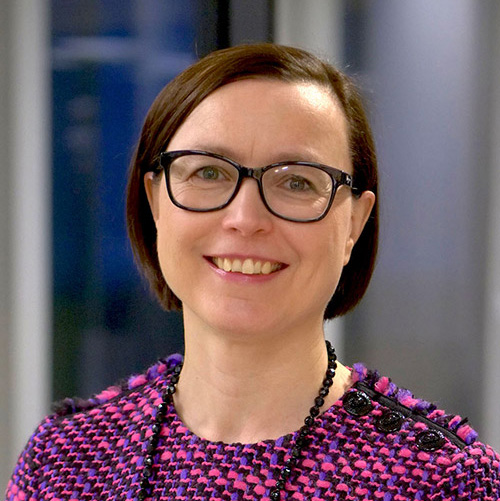Sustainability – Just transition to decarbonisation
October 11, 2021- InfraTalks – utility infrastructure insight

Hanna Viita
The Paris Climate Agreement aims at reaching zero net-emissions by 2050 in response to the overall global climate crisis. In line with the Paris Agreement, the European Union has set a goal to be carbon neutral by 2050. Given this ambition, the pace of emission reductions needs to be drastically increased.
Though energy sector is a big generator of emissions, it has taken leaps to offer solutions towards carbon neutral energy. But we´re just at the beginning of a longer journey and are facing a new era. The role of power and heating is changing. We are transitioning from fossil fuels to bioenergy, from biofuels to non combustion and towards use of electricity. This transformation requires future foresight, planning, cooperation among players, and concrete actions – and the transition must be just.
A just transition means that the transformation towards decarbonisation takes into consideration social, economic and environmental impacts and aims to minimise the negative side effects that the transformation can create. Energy transformation must be available for all citizens and is needed regionally in addition to big cities. All factors are important towards the joint vision. According to Peter Lund, Professor of Advanced Energy Systems at Aalto University, “we need to make humane policies”. Human elements like affordability, wellbeing, and employment need to be better taken into account. Energy transformation will be affected by the EU and national regulations, as well as e.g. by pricing of fuel and electricity. Importantly, in the future, energy may be considered more as a service than a pure commodity. “Instead of paying for energy, you may pay for service such as security, comfort, quality or productivity”, says Peter Lund.
Heating is planned for coping with the colder seasons and handling of backup power is crucial. Balancing of uncertainties is required. The role of digitalisation is vital to acquire data from operations and enable optimisation of energy production and use, which in turn gives possibility for increasing share of renewables and reducing emissions.
A just transition aims to minimise the negative side effects that the transformation can create.
Hanna Viita, Director, Sustainability and Communications
The role of industries in the journey to carbon neutrality is crucial. If presently the energy sector is responsible for most of the emissions, the focus will shift to industries in next decades so that the industry may stand for the highest share of total emissions in the future. The businesses will face a major challenge here. According to Professor Peter Lund, “policies set the framework, but it is the businesses that drive the change”. Industrial processes´ use of energy is changing towards a circular economy. Use of side streams and excess heat is increasing. Companies have green factory or closed loop visions, with zero waste and zero emission targets. Solutions include cooperation with local societies, municipalities, where economies of scale can be achieved to e.g. use excess energy in local district heating network or process back to industrial needs.
At Nevel, we believe we have a role to play in this equation. Our people work for green transition and climate positive future. This means building future proof solutions for the need of industries, municipalities and households. We want to be present locally, supporting ambitions towards decarbonisation, offering technology neutral solutions fit for purpose.
In the next years, companies and municipalities are facing decisions on modernising the energy infrastructure. We have an opportunity to make a big difference. It is our responsibility to enhance safety, reduce emissions and waste and demonstrate benefits of local circular economies. Together we are part of a movement providing solutions to climate and biodiversity. Every action contributes to a bigger goal.
Policies set the framework, but it is the businesses that drive the change.
Peter Lund, Professor of Advanced Energy Systems at Aalto University

Hanna Viita
Director, Sustainability and Communications
+358 40 167 1755
